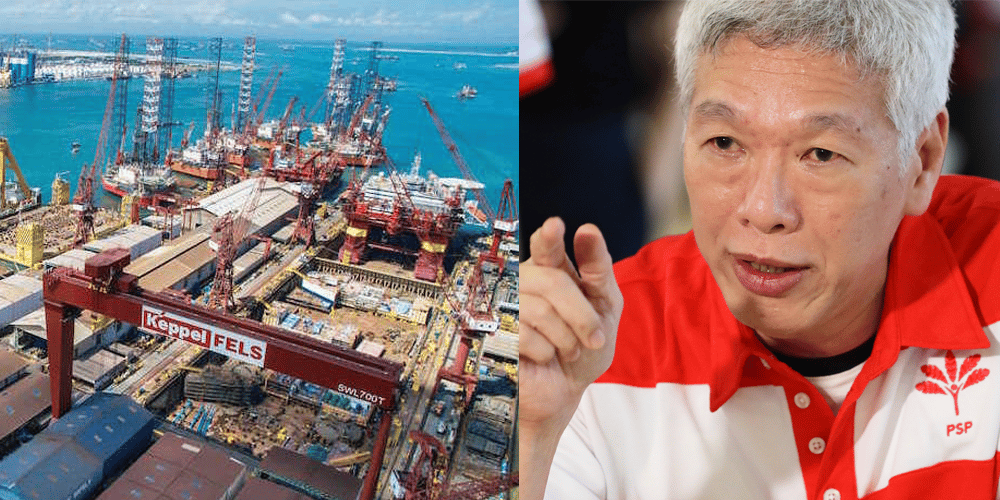Environment and Water Resources Minister Masagos Zulkifli has stated on Thursday (22 February) that the initial carbon tax of S$5 per tonne of greenhouse gas emissions imposed on large emitters is a fair amount and was decided after considering the industry’s compliance costs, among other factors.
Speaking to reporters on the sidelines of the opening of a green classroom at Bukit View Secondary School, he said that the initial tax rate will also help affected businesses transit into the carbon tax regime, and give them time to adjust and comply.
Finance Minister Heng Swee Keat said in his Budget speech on Monday (19 February) that large carbon emitters will be taxed S$5 for each tonne of greenhouse gases generated from next year to 2023, which is a significantly lower rate than the S$10 to S$20 per tonne envisioned last year by the authorities. This is said to give the industry more time to adjust and implement energy efficiency projects.
The minister said that the tax rate will be reviewed by 2023, with the intention of increasing it to between S$10 and S$15 per tonne by 2030.
The carbon tax will apply to about 30 to 40 of the largest emitters here that each produce 25,000 tonnes or more of greenhouse gases a year, which account for about 80 per cent of Singapore’s emissions.
Mr Masagos said they had consulted the industry and arrived at the S$5 per tonne rate, as they also wanted to make sure that the cost of compliance is comparable to the tax they will have to pay.
He also said that the businesses had also asked the authorities to be transparent about the tax rates in the long run, among other reasons, which is why they have set a flat carbon tax rate that will apply to all sectors, with no exemptions, adding, “We took into account that these companies need to transit into the future where they will need time to change their processes, improve their emissions, so that when the tax actually takes place at a higher rate… they (would) already have reduced (their) emissions.”
He also noted that businesses will also need time to comply with the requirements under the carbon tax regime, as well as to adjust to them during this period of transition.
The minister said, “I think by giving them five years to adjust and also getting used to the compliance regiment of this carbon tax, S$5 is a fair amount to put to our companies,” adding that in jurisdictions where there is a high carbon tax, exemptions are also made for certain industries where the tax rates are lowered such that it is no longer as effective.
There is concern about the projected carbon tax rates after 2030. Commenting on this, the minister said that timeline is still “too far away.
He also said that the decision that companies will pay between S$10 and S$15 by 2030 depends on many factors, including competitiveness as well as the level playing field the government will like to see around.
Reporters then asked the minister if more regular and detailed data on Singapore’s emissions, including those of individual emitters, will be published.
Responding on this, Mr Masagos said the carbon pricing bill has to be passed in Parliament so that the authorities can get a clearer picture of how much greenhouse gas each large emitter produces and how to nudge them to do better.
Large emitters will have to register themselves as a taxable facility in the draft carbon pricing bill released for public consultation last October. The National Environment Agency (NEA) will determine the number of carbon credits they have to surrender based on the emissions report they submitted for that year, which must be verified by an independent third party.
Such data will not be released publicly. However, the Ministry of Environment and Water Resources (MEWR) will continue to release key environmental statistics annually. For example, the most recent publication last year showed Singapore’s total annual greenhouse gas emissions for 2014 and 2015, which were recorded at about 50 million and 51.4 million carbon dioxide-equivalent tonnes respectively.
More comprehensive emissions report published in 2012, which was submitted to the United Nations Framework Convention on Climate Change two years ago. Updated figures will be released at the end of this year.
Programme director at Nanyang Technological University’s (NTU) Energy Research Institute, Dr Sanjay Kuttan, stated that more data on Singapore’s emissions will help with innovation, where specific innovation can be targeted at areas or processes that can be more efficient.
Associate Professor Toh Mun Heng from the National University of Singapore Business School stated the amount of information to be made publicly available has to be balanced between allowing businesses to remain competitive and to be accountable to the public.
He also said that given that the large emitters will have to submit more of such data to the authorities, the Government has to be the honest broker to monitor the emitters’ emissions levels and their impact on the environment and the public.
Minister Heng had said that households will expect less than 1% increase in overall electricity bill but that remains an uncertainity given how cost cascade through the supply and distribution chain.






